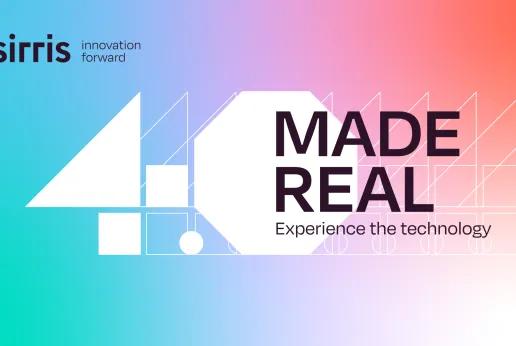
Unlock your company's full potential with AI, machine learning, and data visualization
This masterclass aims to give participants a better insight into the type of industrial problems that can be tackled using data and machine learning (ML) techniques, illustrated by several real-world examples.
The working language of this module is English.
For whom?
The masterclass is open to anyone of a company interested in data innovation as an opportunity for its company and activities. To follow these modules, some basic analytic skills (e.g. high-level understanding of algebra and interpretation of statistical figures) are a prerequisite.
Why is this relevant to you?
Data, advanced AI and machine learning techniques have the potential to significantly improve industrial processes by automating and improving decision-making, reducing costs, and increasing efficiency. We will do a deep dive into these techniques illustrated by real-world examples. These techniques can be relevant for (the cases presented during the Masterclass might differ from the list below):
-
Predictive maintenance: AI and ML algorithms can analyze data from sensors and machinery to predict when maintenance or repair will be necessary, reducing downtime and improving equipment reliability.
-
Quality control: AI-powered computer vision systems can inspect products for defects during production, reducing the risk of faulty products reaching customers. ML algorithms can be trained on large amounts of data to identify patterns and anomalies in production processes, enabling real-time quality control and improving product quality.
-
Optimization: ML and AI algorithms can optimize production processes, reducing waste and improving efficiency. For example, AI can be used to optimize scheduling and resource allocation and minimize energy consumption.
-
Decision-making and AI & ML: AI can analyze data from multiple sources, such as market trends, consumer behavior, and production metrics, to provide insights and support decision-making in industrial settings. ML algorithms can be trained on large amounts of data to make predictions and provide insights, supporting decision-making in industrial environments. For example, ML algorithms can predict product demand, identify areas for cost reduction, and predict future trends in the market.
-
Data visualization techniques allow in industrial settings to enhance communication and a better understanding of complex information to different stakeholders. Concretely, data visualizations can provide real-time monitoring of industrial processes, enabling managers to respond quickly to any issues, leading to faster and better-informed decisions.
However, it's important to note that the successful implementation of AI and ML in these settings requires careful consideration of factors such as data quality, algorithm performance, and ethics, as well as a thorough understanding of the specific requirements and constraints of the industry.
What will you learn?
- 9:00-13:00: The power of data visualization
Data visualization can be applied in different phases of a data-driven project. It supports data exploration to extract the first insights from the data and enables the presentation of these insights to users. However, choosing the most efficient method for data visualization is not self-evident. We'll give you an overview of existing data visualization methods and how they can be used most effectively to highlight essential data properties, highlight trends, reveal hidden patterns, etc.
- 13:00-13:30: Sandwich lunch
- 13:30 – 17:30: The industrial relevance of advanced AI/ML techniques will cover the following practices:
- Reinforcement learning
- Deep learning
- Active learning
- Federated learning
Each method, its characteristics, advantages, and disadvantages will be explained in more detail, as well as the most used algorithm(s) to solve a particular industrial problem.
We'll give you the tools to make a conscious choice for the appropriate technique, depending on the problem setting, the available data (dimensionality, attribute types, etc.) and the expected model requirements (interpretability, accuracy, scalability, etc.).
Detailed agenda
09:00 – 09:15: Welcome
09:15 – 09:25: The power of data visualization
09:25 – 10:25: Visualization concepts
10:25 – 10:40: Break
10:40 – 11:10: Visualizing multidimensional and event data
11:10 – 12:00: Data visualization in the data science workflow
12:00 – 12:30: Interactive data visualization example
11:30 – 12:40: Concluding remarks, Q&A
12:40 – 13:30: Lunch Break
13:30 – 14:10: Bio-inspired computing
14:10 – 14:50: Deep learning
14:50 – 15:10: Break
15:10 – 15:50: Reinforcement learning
15:50 – 16u30: Language models
16:30 – 17:00: Concluding remarks + Q&A
Price
The participation fee for this Masterclass is € 375 (excl. VAT) for companies located in Flanders. This is thanks to the support of VLAIO provided under the Industry partnership.
Participants not located in Flanders pay € 1.245 (excl. VAT).
General terms
- Invoices will be sent after the event. You can consult our general conditions on our website.
- If you are unable to attend, you can be replaced by a colleague. Please notify us by email to events.admin@sirris.be of the name of your colleague.
- Cancellations must be made by email to events.admin@sirris.be. You can cancel your participation free of charge up to 3 working days before the event. In case of cancellation after this date or non-participance without cancellation, you will be invoiced for the full participation fee.







